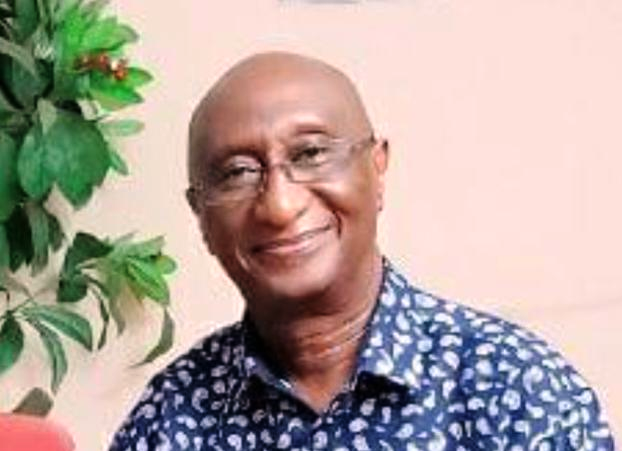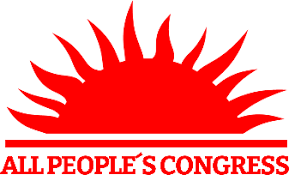By Cyllo Wise
The All People’s Congress (APC), a dominant force in Sierra Leonean politics, now finds itself in a state of profound uncertainty and disarray. The party that once commanded vast support across the nation is currently grappling with an identity crisis, leadership vacuum, and the aftermath of a series of electoral defeats. The APC’s current predicament reflects deeper issues within the party, including internal divisions, a lack of coherent strategy, and an inability to effectively challenge the ruling Sierra Leone People’s Party (SLPP).
Founded in 1960, the APC has played a central role in Sierra Leone’s political history. The party was established by Siaka Probyn Stevens, who would later become the country’s first executive president. Under Stevens’ leadership, the APC rose to power in 1967, marking the beginning of a long period of dominance that lasted until 1992. During this time, the APC transformed Sierra Leone’s political landscape, but its rule was also marked by accusations of authoritarianism, corruption, and human rights abuses.
The APC’s hold on power was abruptly ended by a military coup in 1992, which ushered in a decade of civil war. The party spent much of this period in the political wilderness, but it made a significant comeback in the mid-2000s. Ernest Bai Koroma’s victory in the 2007 presidential election marked the APC’s return to power, and under his leadership, the party governed Sierra Leone for a decade, overseeing significant infrastructural development and economic reforms.
However, the APC’s second stint in power was not without controversy. Accusations of corruption, mismanagement, and an increasingly authoritarian approach to governance began to erode the party’s support. The 2018 general elections marked a turning point, as the APC lost the presidency to Julius Maada Bio of the SLPP. Since then, the party has struggled to regroup and redefine its role in Sierra Leonean politics.
Furthermore, The APC’s defeat in the 2018 elections was a significant blow, one that the party has struggled to recover from. The loss of power exposed deep-seated issues within the party, including internal divisions and a lack of clear leadership. In the years since, the APC has found itself increasingly sidelined in the political arena, unable to effectively challenge the SLPP or present a compelling alternative to the electorate.
One of the key issues facing the APC is its inability to unite around a single leader or coherent strategy. Since the 2018 defeat, the party has been mired in leadership disputes, with various factions vying for control. The absence of a strong, unifying figure has left the party adrift, unable to articulate a clear vision for the future or mount an effective opposition to the SLPP.
The APC’s internal divisions are further exacerbated by ideological differences and personal rivalries. The party is split between those who advocate for a return to its traditional values and those who believe that the APC needs to modernize and adapt to the changing political landscape. These divisions have hindered the party’s ability to present a united front and have led to a lack of direction and purpose.
The leadership vacuum within the APC is one of the most significant challenges facing the party. Since the departure of Ernest Bai Koroma, who led the party from 2002 to 2018, the APC has struggled to find a leader who can unite its various factions and provide a clear direction. Koroma’s departure left a void that has yet to be filled, and the party has been unable to coalesce around a new leader.
Several figures within the APC have sought to fill this leadership gap, but none have been able to command widespread support. The party’s leadership struggles have been marked by intense factionalism, with various groups within the APC backing different candidates for the top positions. These factions are often driven by personal ambitions, regional loyalties, and differing views on the party’s future direction.
The factionalism within the APC has led to a series of leadership crises, with disputes over who should lead the party often spilling over into the public domain. These disputes have further weakened the party’s standing with the electorate, who see the APC as divided and directionless. The lack of a clear leader has also made it difficult for the party to articulate a coherent policy platform or present a unified front in opposition to the SLPP.
Ernest Bai Koroma remains a central figure within the APC, even after stepping down as president in 2018. His influence within the party is significant, and many within the APC continue to look to him for guidance and leadership. However, Koroma’s continued involvement in the party has also been a source of controversy.
Some within the APC argue that Koroma’s continued influence has hindered the party’s ability to move forward and renew itself. They believe that his presence has prevented the emergence of new leaders and has kept the party tied to the past. Others, however, see Koroma as a stabilizing force within the APC, someone who can help guide the party through its current crisis.
Koroma’s role in the APC’s future remains uncertain. While he has expressed a desire to see the party renew itself, his continued involvement in the party’s affairs suggests that he is not yet ready to relinquish control. This has led to speculation that Koroma may seek to influence the selection of the APC’s next leader, a move that could further deepen the divisions within the party.
One of the key challenges facing the APC is its inability to develop a coherent electoral strategy. Since the 2018 defeat, the party has struggled to define its position on key issues and to present a compelling alternative to the SLPP. This lack of direction has been reflected in the party’s poor performance in subsequent elections, including the 2023 general elections, where the APC once again failed to regain the presidency.
The APC’s electoral strategy has been hampered by several factors, including its internal divisions, lack of clear leadership, and an inability to connect with the electorate. The party’s messaging has often been inconsistent and unfocused, with different factions within the APC promoting different agendas. This has made it difficult for the party to present a unified vision to the voters.
In addition, the APC has struggled to adapt to the changing political landscape in Sierra Leone. The party has been slow to embrace new forms of communication and outreach, such as social media, and has failed to effectively engage with younger voters. This has left the APC increasingly out of touch with the electorate, particularly in urban areas where the party’s support has declined.
To regain its footing, the APC will need to develop a clear and coherent electoral strategy that addresses the concerns of the electorate and presents a viable alternative to the SLPP. This will require the party to overcome its internal divisions, unite around a single leader, and develop a clear policy platform that resonates with voters.
The APC’s relationship with civil society and the media has been another area of concern. During its time in power, the party was often criticized for its treatment of journalists and civil society organizations, with accusations of press censorship and intimidation. This has left a legacy of mistrust between the APC and these key stakeholders, which has hindered the party’s ability to effectively engage with the public.
Since its defeat in 2018, the APC has made some efforts to rebuild its relationship with civil society and the media, but these efforts have been hampered by the party’s internal struggles. The APC’s inconsistent messaging and lack of clear leadership have made it difficult for the party to effectively communicate its position on key issues or to build trust with these groups.
Rebuilding its relationship with civil society and the media will be crucial for the APC if it hopes to regain the public’s trust and support. This will require the party to adopt a more transparent and accountable approach to governance and to engage more constructively with these groups. It will also require the APC to address the legacy of its time in power and to demonstrate a genuine commitment to reform.
The APC’s current state of limbo raises important questions about the party’s future role in Sierra Leonean politics. As one of the country’s two main political parties, the APC has traditionally played a central role in shaping Sierra Leone’s political landscape. However, its recent struggles have called into question the party’s ability to continue playing this role.
For the APC to remain a relevant and influential force in Sierra Leonean politics, it will need to undergo significant reforms. This will involve addressing the party’s internal divisions, developing a clear and coherent policy platform, and building a new leadership team that can unite the party and present a credible alternative to the SLPP.
The APC will also need to adapt to the changing political landscape in Sierra Leone. This will require the party to engage more effectively with younger voters, to embrace new forms of communication and outreach, and to build stronger relationships with civil society and the media. If the APC can successfully navigate these challenges, it could emerge from its current crisis stronger and more unified.
Several scenarios could unfold for the APC in the coming years, each with significant implications for the party and for Sierra Leonean politics more broadly.
The APC can successfully address its internal divisions, unite around a new leader, and develop a clear and coherent policy platform. This could lead to a revival of the party’s fortunes and a renewed ability to challenge the SLPP in future elections.
The APC stands at a critical juncture in its history, where the decisions it makes in the near future will determine whether it can reclaim its position as a dominant force in Sierra Leonean politics or fade into irrelevance. The party’s current state of disarray, marked by leadership struggles, internal divisions, and a lack of clear direction, poses significant challenges. However, it also presents an opportunity for renewal. By addressing these issues head-on, uniting under a visionary leader, and developing a strategy that resonates with the electorate, the APC can reinvigorate its base and reassert its relevance on the national stage.
Yet, the path forward is fraught with difficulties. The APC must reconcile its past with the demands of the present, finding a way to honor its legacy while also embracing the need for change. This includes modernizing its approach, reaching out to younger voters, and rebuilding trust with civil society and the media. The party must also confront the influence of entrenched interests within its ranks, ensuring that its leadership is truly representative of its broader membership.
The future of the APC is not just a matter of internal party politics; it is also a question of Sierra Leone’s democratic health. As one of the country’s major political parties, the APC plays a crucial role in providing a check on the ruling government and offering voters a real choice. Its ability to emerge from this period of uncertainty will have a profound impact on the overall political landscape in Sierra Leone.
Ultimately, the APC’s journey out of its current political limbo will require both introspection and bold action. If the party can rise to the challenge, it may yet reclaim its former glory. But if it continues on its current path, the APC risks becoming a relic of the past, overshadowed by a new generation of political actors who are better attuned to the needs and aspirations of Sierra Leone’s electorate. The stakes are high, and the decisions made in the coming months and years will shape not only the future of the APC but also the future of Sierra Leonean democracy.













